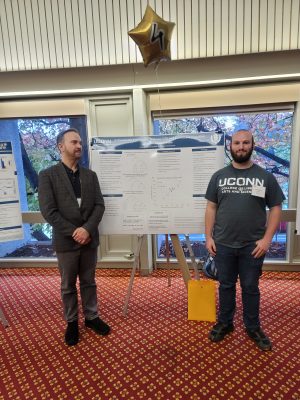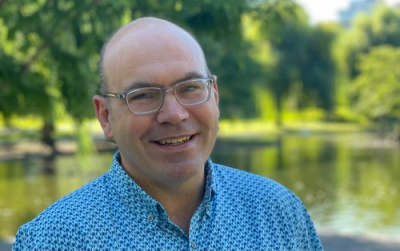Dear Colleagues,
You are cordially invited to the 25th annual Neuroscience at Storrs event, which will be held on Tuesday November 8th and Wednesday November 9th 2022. This event is hosted by the Interdisciplinary Program in Neuroscience, and it is the oldest cross-discipline neuroscience event on campus. Please forward this message to any interested people.
DAY I. Tuesday November 8th 4:00 pm, Dodd Center Konover Auditorium
Amanda Lauer Ph.D., Associate Professor of Otolaryngology, Johns Hopkins University
Title: “Role of the auditory brain-to-ear efferent feedback system in hearing across the lifespan”
DAY II. Wednesday November 9th
Dodd Center Konover Auditorium
3:00-3:45 Grad Student/Postdoc Data Blitz
3:45-4:30 Trainee Career Panel
4:30-5:30 Amy Newman Ph.D., Scientific Director, NIDA Intramural Research Program
Title: “Novel and atypical dopamine transport inhibitors for the treatment of psychostimulant use disorders”
Bousfield PSYC Atrium
6:00-8:30 Poster Session and Reception
CALL FOR POSTERS AND DATA BLITZ PRESENTATIONS:
We will be hosting short-format podium presentations (data blitz) from grad students and postdocs (up to 8 possible 5-minute talks), and a poster session from grad students, postdocs, and undergrads. Students and postdoctoral fellows FROM ALL AREAS OF NEUROSCIENCE are enthusiastically encouraged to participate in the poster or data blitz presentations. Please sign up at:
https://nam10.safelinks.protection.outlook.com/?url=https%3A%2F%2Fneuroscience.uconn.edu%2Fneuroscience-at-storrs-rsvp%2F&data=05%7C01%7C%7Cb19e263ac50f4cca8f1d08dab2cfbde1%7C17f1a87e2a254eaab9df9d439034b080%7C0%7C0%7C638018902554103725%7CUnknown%7CTWFpbGZsb3d8eyJWIjoiMC4wLjAwMDAiLCJQIjoiV2luMzIiLCJBTiI6Ik1haWwiLCJXVCI6Mn0%3D%7C3000%7C%7C%7C&sdata=j4Ucn2eD7ATqzQqAvmXY%2FxOWom9k1OzmJJhN177dFDk%3D&reserved=0
INSTRUCTIONS:
The website lists information about the event, and below that there are menus for entering information if you are either a) attending only b) presenting a poster, and c) presenting at the data blitz (limited numbers only). Please follow the link, scroll through the menu and enter the relevant information by Thursday November 3rd.

